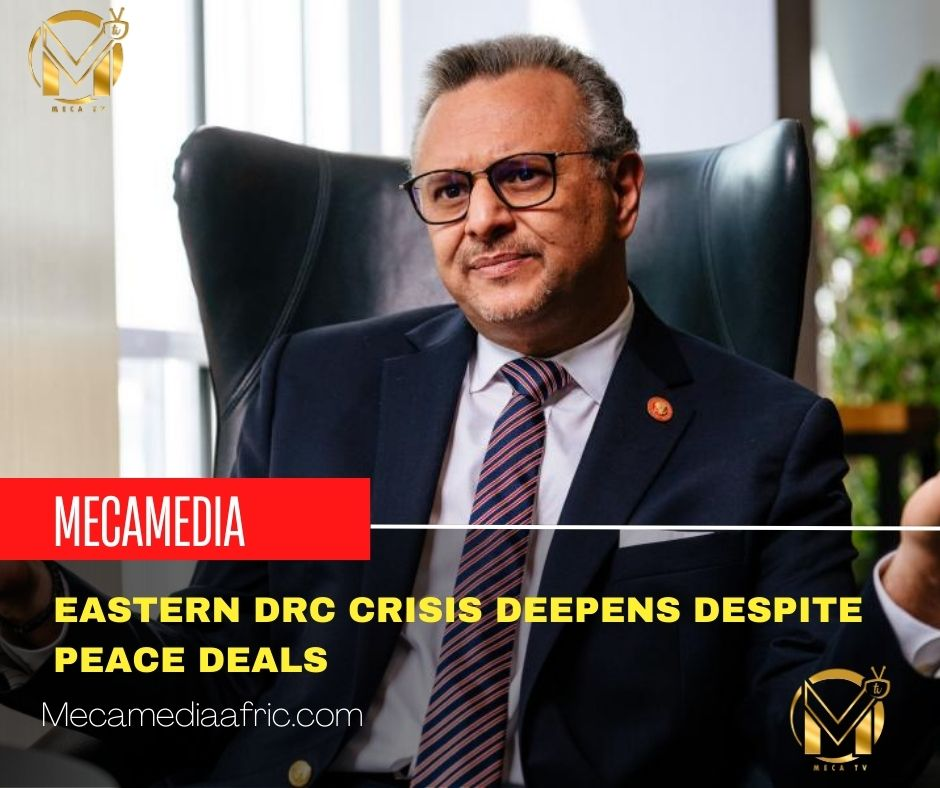
Eastern DRC Faces “Severe Deterioration” Despite Peace Agreements
The eastern part of the Democratic Republic of Congo (DRC) continues to face a “severe deterioration” of the security and humanitarian situation, marked by grave abuses such as summary executions—including of children—and conflict-related sexual violence, despite the peace agreement signed between Kinshasa and Kigali and the subsequent Declaration of Principles under Qatari mediation.
Expressing deep concern over this situation, Massad Fares Boulos, Senior Advisor for Africa at the U.S. State Department, urged all parties to respect the ceasefire. For the Trump administration’s “Mr. Africa,” the ongoing violence undermines peace efforts on the ground.
“The United States condemns the resurgence of violence reported today in eastern DRC and calls on all parties to respect the ceasefire. We need cooperation and strong leadership to ensure the rigorous and successful implementation of the peace agreement. Violence undermines progress toward peace and prosperity,” wrote Boulos on X, highlighting his role in U.S. peace initiatives between Kinshasa and Kigali.
Mounting Tensions on the Ground
On the ground, tensions are rising between the Armed Forces of the Democratic Republic of Congo (FARDC) and the Congo River Alliance/M23 rebellion (AFC/M23), as both sides accuse each other of repeated ceasefire violations while the Doha peace process stalls.
In a statement, the Congolese army denounced the “warlike posture” of the M23/AFC coalition, accusing it of carrying out “multiple attacks” on FARDC positions in North and South Kivu, accompanied by “targeted massacres” of civilians. The FARDC described these as a “deliberate and blatant violation” of both the Washington peace agreement and the Doha Declaration of Principles, vowing to “respond appropriately to all provocations.”
On its part, the AFC/M23 claims that Kinshasa continues “offensive military maneuvers” aimed at triggering “a large-scale conflict,” despite the July 19 Doha Declaration of Principles. The rebels point to significant troop movements and military equipment in several areas of North and South Kivu, including Uvira, where they allege to have observed the docking of “two military vessels transporting 1,125 soldiers.” The group accuses the government of “undermining the peace process” and insists it remains on “maximum alert.”
Diplomatic Stalemate

These exchanges come amid a diplomatic deadlock. Direct talks scheduled for August 8 in Doha between the Congolese government and AFC/M23 did not take place. According to the Qatari mediation, both sides are “still working” on implementing the Declaration of Principles, particularly the creation of a mechanism—assisted by the International Committee of the Red Cross—for prisoner exchanges. This step, which was to be finalized by July 29, remains unresolved, stalling further negotiations. Both Kinshasa and AFC/M23 had committed to releasing detainees reciprocally before advancing to a new negotiation phase.
UN Appeals for Civilian Protection
Last week, Volker Türk, UN High Commissioner for Human Rights, renewed his appeal to all parties in the eastern DRC conflict to protect civilians and respect their obligations under international humanitarian and human rights law. In a statement delivered on Wednesday, August 6 in Geneva, he further urged all signatories of the recently signed Declaration of Principles to engage in good faith, act decisively, and work to end the recurring cycles of violence.
Read more:Former DRC Agriculture Minister Joins AFC/M23 Armed Coalition
DRC na M23 Wafikia Makubaliano ya Amani Doha
DRC na M23 Wafikia Makubaliano ya Amani Doha
M23 Yazuia Tume ya UN Kuchunguza Ukiukwaji wa Haki
Author: Mangwa
Read more: mecamediaafrica.com
#DRC #CongoCrisis #M23 #AFC #FARDC #DohaPeace #HumanRights #Kinshasa #Kigali #UnitedStates #UN

Eastern DRC Crisis Deepens Despite Peace Deals

